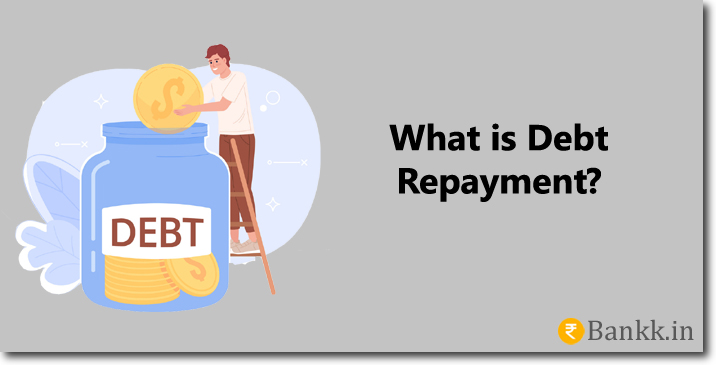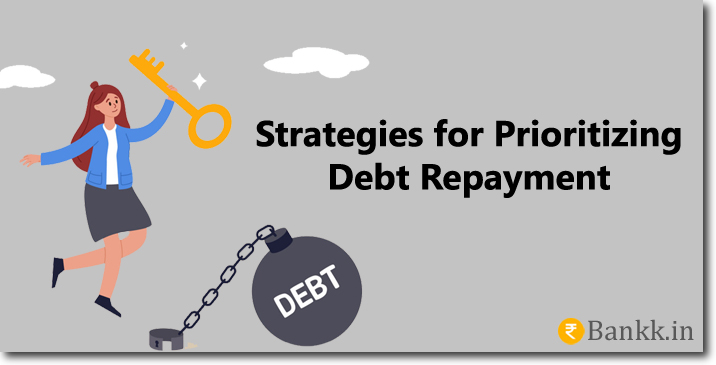Debt can become a huge burden, especially when you have multiple debts with varying interest rates and payment schedules. Prioritizing debt repayment can help you manage your finances and pay off your debts faster. In this article, we will discuss some strategies for prioritizing debt repayment.
But before that let us understand the meaning of debt repayment and the reasons why you should prioritize payments of the debts you have.
What is Debt Repayment?
Debt repayment refers to the process of paying back money that has been borrowed. This can include loans, credit cards, and other forms of debt. Repayment typically involves making regular payments over a period of time, with the goal of eventually paying off the debt in full.
Debt repayment is an important part of managing your finances. By making regular payments on your debts, you can reduce the amount of interest you pay and improve your credit score.
Reasons why you should prioritize debt repayment:
- Reduce Stress: Debt can act as a major source of stress. Prioritizing debt repayment can help reduce stress by providing a clear plan for paying off your debts.
- Save Money on Interest: By prioritizing high-interest debts, you can save money on interest charges over time.
- Improve Credit Score: Paying off debt can help improve your credit score, which can make it easier to qualify for loans or credit cards with better terms.
- Increase Financial Security: Reducing debt can increase your financial security by freeing up more of your income for savings and investments.
- Avoid Bankruptcy: Prioritizing debt repayment can help you avoid bankruptcy, which can have long-lasting negative effects on your credit and financial future.
- Achieve Financial Goals: Paying off debt can help you achieve your financial goals, such as saving for retirement or buying a home.
- Reduce Risk of Default: Prioritizing debt repayment can reduce the risk of defaulting on your loans, which can have serious consequences such as wage garnishment or legal action.
- Increase Financial Flexibility: Reducing debt can increase your financial flexibility by freeing up more of your income for discretionary spending.
- Improve Relationships: Debt can strain relationships with family and friends. Prioritizing debt repayment can help improve relationships by reducing financial stress.
- Increase Peace of Mind: Knowing that you have a plan for paying off your debts can provide peace of mind and reduce worry about your financial future.
12 Strategies for Prioritizing Debt Repayment
1. Debt Snowball Method
The debt snowball method is a debt-reduction strategy where you pay off your debts starting with the smallest balance first while paying the minimum payment on larger debts.
Once the smallest debt is paid off, you proceed to the next larger debt, and so forth, until all debts are paid off. This method can help you build momentum and motivation as you see your debts being paid off one by one.
The idea behind this method is that by paying off smaller debts first, you’ll feel a sense of accomplishment and be more motivated to continue paying off your debts.
2. Debt Avalanche Method
The debt avalanche method is a strategy for paying off debt where you focus on paying off the debts that have the highest interest rates first, followed by the debt with the next and so on.
This method may help you save money on interest charges in the long run. The idea behind this method is that by focusing on paying off high-interest debts first, you’ll save money on interest charges over time.
3. Debt Consolidation
Debt consolidation is a form of debt refinancing where you take out one loan to pay off multiple debts. This can simplify your finances by combining multiple payments into one monthly payment, and may also help you secure a lower interest rate. Debt consolidation can be done through a personal loan, home equity loan, or balance transfer credit card.
4. Prioritize High-Interest Debts
You should prioritize high-interest debts, such as credit card balances and personal loans. This will save you a lot of money. You can focus on paying off the debt with the highest interest rate and making nominal payments on other debts. Once the high-interest debt is completely repaid by you, move on to the next debt.
5. Budgeting and Cutting Expenses
Creating a budget and cutting expenses can help free up money and use it towards your debt repayment. Review your expenses and identify areas where you can cut back, such as subscriptions or dining out. And then use the same money to pay off your debts faster.
6. Increase Income:
Increasing your income can provide more money to put towards debt repayment. Consider asking for a raise, taking on a side job, or finding ways to earn passive income.
7. Negotiate Lower Interest Rates
Negotiating lower interest rates on your debts can help reduce your monthly payments and save you money on interest charges. Contact your creditors and see if they are willing to lower your interest rates.
8. Use Windfalls and Bonuses:
If you receive a windfall or bonus, consider using it to pay down your debts. This can provide a significant boost to your debt repayment efforts.
9. Credit Counseling
Credit counseling can provide guidance and support as you work to pay off your debts. A credit counselor is the right person who can help you in creating a budget, negotiate with creditors, and develop a debt repayment plan to help you pay off your debts faster.
10. Balance Transfers
A balance transfer involves moving a balance from one credit card to another, often with a lower interest rate. This can help you to reduce the monthly payments you have to make against your debts and save you money on interest charges.
11. Emergency Fund
An emergency fund is a financial safety net that can help cover unexpected expenses or emergencies without having to rely on credit cards or loans. Building an emergency fund can help prevent further accumulation of debt.
12. Prioritize Tax-Deductible Debt
Some types of debt, such as mortgage interest or student loan interest, may be tax-deductible. Prioritizing these debts can provide additional financial benefits by reducing your tax liability.
Conclusion
There are many strategies for prioritizing debt repayment that can help you manage your finances and pay off your debts faster while avoiding bankruptcy or draining your bank account. It’s important to find a strategy that works for you and fits within your budgeting goals.


